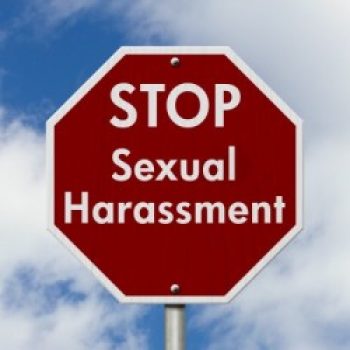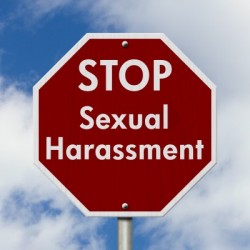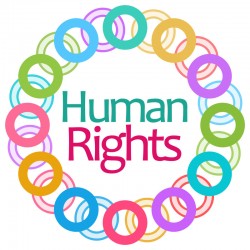Headlines splashed across the news reveal that workplace sexual harassment and sexual misconduct claims persist throughout the U.S., and New York is no exception. New York State and New York City have taken remedial steps in response, enacting changes to the law.
Effective September 6, 2018, New York City employers must display a notice of anti-sexual harassment rights and responsibilities poster in employee break rooms and employee common areas in English and Spanish and distribute an information sheet to employees regarding sexual harassment and their rights, upon hire. Last week, the New York City Commission on Human Rights launched a web page containing resources about sexual harassment prevention.[1]
Effective October 9, 2018, all employers in New York State must provide mandatory sex harassment prevention training to their employees and implement sex harassment prevention policies that comply with or exceed the requirements of model policies issued by New York State Division of Human Rights and New York State Department of Labor.
Background Summary
These recent developments follow on the heels of legislation implemented at the State and local level. Specifically, in April 2018, Governor Cuomo signed measures in the 2018-19 budget bill requiring employers in New York State to adopt sexual harassment prevention policies and conduct annual training on such policies, restricting the use of non-disclosure and arbitration provisions related to claims of sexual harassment, and extending workplace protections against sexual harassment to non-employees, among other things.[2]
In May 2018, the New York City Council enacted the Stop Sexual Harassment in NYC Act, to prevent sexual harassment in the workplace. The law requires private employers with 15 or more employees in New York City to conduct annual, interactive anti-sexual harassment training for all employees starting April 1, 2019.
New Legal Requirements for New York State and New York City Employers
Below is a chronology of the timing of new legal requirements for employers in New York State and New York City:
Sexual harassment prevention postings, policies and training
September 6, 2018: New York City employers must display a notice of anti-sexual harassment rights and responsibilities poster in employee breakrooms and employee common areas in English and Spanish and must distribute an information sheet to employees regarding sexual harassment and their rights, upon hire. Last week, the New York City Commission on Human Rights issued a sample notice and fact sheet on its website for use by employers that satisfies this requirement.[3]
October 9, 2018: Policy and annual training requirement: Employers in New York state must adopt a sexual harassment prevention policy that meets the following specified requirements:
- Provide examples of prohibited (sexual) conduct
- Provide information on state and federal laws concerning sexual harassment and remedies available to victims
- Include a procedure for timely and confidential investigation of complaints that ensures due process for all parties
- Inform employees of their rights and all available forums for adjudicating complaints administratively and judicially
- Include a standard complaint form
- State that sexual harassment is considered a form of employee misconduct and that sanctions will be enforced against individuals engaging in sexual harassment and against supervisors and managers who knowingly allow such behavior to continue
- State that retaliation against individuals who complain of sexual harassment or those who testify or assist in any legal proceeding is unlawful
The New York State Division of Human Rights and New York State Department of Labor must issue model policies and the employer’s policy must meet or exceed the requirements of those model policies. The agencies have not yet issued the model policies.
April 1, 2019: New York City employers with 15 or more employees are required to conduct annual interactive, sexual harassment prevention training for all employees, and within 90 days of a new hire start. Such training must include, but is not limited to:
- Interactive (participatory) training, such as interactions between trainer and trainee, and use of audio-visuals
- Explanation of sexual harassment as a form of unlawful discrimination
- Description of what sexual harassment is, and is not, using examples
- Explanation of internal and external complaint processes to address sex harassment claims, including judicial fora and legal remedies
- Prohibition of retaliation after a complaint has been raised
- Importance of bystander intervention
- Additional interactive training for supervisors and managers which should include: (1) specific responsibilities of supervisors and managers in preventing sexual harassment and retaliation, and (2) measures that supervisors and managers may take to appropriately address sexual harassment complaints
The New York City law requires employers to keep a record of all trainings and employee acknowledgement of attending the training, which employers must maintain for at least three years and be made available for inspection by the New York City Commission on Human Rights upon request.
January 1, 2019: Any employer submitting a bid to New York State or any of its public departments or agencies for a public contract will need to include a prescribed statement in the bid certifying compliance with the sexual harassment prevention policy and annual training requirements. Failure to provide such certified statement may result in ineligibility for the contract.
Organizations with contracts with New York City must also include their anti-sexual-harassment policies in their applications for City business.
Restrictions on non-disclosure provisions
Effective July 11, 2018, non-disclosure provisions in agreements settling claims of sexual harassment are prohibited, unless the complainant prefers to include a non-disclosure requirement. If a non-disclosure provision is presented to a complainant in connection with a settlement, s/he has 21 days to consider it and if, after 21 days, the complainant’s preference is to include the provision, then the parties must memorialize such preference in writing. The complainant then has 7 days to revoke her signed agreement.
Restrictions on mandatory arbitration clauses
Effective July 11, 2018, New York’s Civil Practice Law and Rules (“CPLR”) was amended to prohibit employers from using arbitration to resolve claims of sexual harassment. The enforceability of such a restriction is questionable since the U.S. Supreme Court has repeatedly upheld parties’ use of arbitration as a forum to resolve employment disputes under the Federal Arbitration Act (FAA), and has rejected public policy arguments as a means to override parties’ choice of arbitration under the FAA. Nonetheless, employers in New York would be well-advised to comply with New York law and this amendment to the CPLR. With respect to union employees, however, if there is a conflict between this prohibition and a collective bargaining agreement, the collective bargaining agreement will control.
What Nonprofit Organizations Are Doing in Response to #MeToo
In addition to conducting the required annual trainings for supervisors and staff and updating sex harassment prevention policies and procedures, a number of non-profit organizations have taken some concrete steps to eradicate workplace sexual harassment, including:
- Requiring grant recipients to disclose any finding of sexual or other harassment involving grant personnel, to disclose the placement of any individuals on administrative leave relating to harassment investigations or findings, and suspending or terminating a grant. Researchers may be banned from seeking federal grants for some period of time as well, potentially
- Training board members on an organization’s sex harassment policies and procedures, creating an HR committee on the Board to ensure Board awareness of allegations of sex harassment, and seeking “360 performance reviews” of the CEOs/Executive Directors by staff to determine whether there are systemic issues relating to sex harassment or failure to adequately address such complaints
- Implementing codes of conduct at conferences sponsored by nonprofit organizations and ensuring attendees are aware of how to make complaints of inappropriate conduct during such conferences
- Reviewing policies and practices carefully to determine if there are other ways to manage risk and ensure employees are safe
- Ensuring that mandatory conferences/events or destinations where organizations are sending their employees are not unsafe spaces for an organization’s workers and that workers know how to make complaints to their employing organization if they feel unsafe while working outside the office
- Ensuring high-level hires and board members are properly “vetted” to ensure no past history of sexual harassment claims or findings; and of course,
- Obtaining employment practices liability insurance to provide coverage in the event of a claim of sexual harassment.
It remains an open question whether State Attorneys General or at least New York’s Attorney General will– now or at some point–require nonprofit organizations to disclose whether they have sexual harassment prevention policies and complaint procedures and conduct annual sex harassment prevention trainings, and/or the number and amounts of sex harassment settlements. Those numbers may be material to an inquiring Attorney General as to whether tax-exempt donations are being directed to programming and operations to support an organization’s mission or instead to pay off the misdeeds of an employee. It also remains to be seen whether States other than California will enact legislation to provide immunity from defamation to employers who report to prospective employers whether they would not rehire an employee due to a finding of sexual harassment.
Practical next steps/recommendations
Employers in New York State should review and update their existing policies and training programs addressing sexual harassment prevention, any contracts with New York State or City agencies, and any mandatory arbitration and confidentiality provisions regarding sexual harassment, to ensure compliance with the new legal requirements. Employers in New York State that do not currently have such policies and/or training programs will need to adopt them promptly to comply with the new laws.
Our employment law department conducts civility/respect in the workplace trainings. Please contact Lisa Brauner, Head of Perlman & Perlman LLP’s Employment Law Practice, at: lisa@perlmanandperlman.com or 212-889-0575 to schedule a training (and update the employee handbook) for your organization by the October 9th deadline.
[1] See https://www1.nyc.gov/site/cchr/law/stop-sexual-harassment-act.page.
[2] In addition, any employee of a “public entity” in New York State (including government entities operating a public school, college or university) who has been found personally liable for intentional wrongdoing related to a sexual harassment claim must reimburse the State for payment of funds made on employee’s behalf in satisfaction of that judgment.
[3] See https://www1.nyc.gov/site/cchr/law/stop-sexual-harassment-act.page
-
Perlman & Perlmanhttps://www.staging-perlmanandperlman.com/author/nancyisrael/
-
Perlman & Perlmanhttps://www.staging-perlmanandperlman.com/author/nancyisrael/
-
Perlman & Perlmanhttps://www.staging-perlmanandperlman.com/author/nancyisrael/
-
Perlman & Perlmanhttps://www.staging-perlmanandperlman.com/author/nancyisrael/










